Informed Community Working Group is the driver towards the success of the SAMRC clinical trials
By engaging in community-based participatory research, researchers establish a strong bond with community members, inviting them to actively participate in the research process. This inclusive approach prioritises the thoughts and concerns of those who bear the brunt of health issues. By granting authority and autonomy to communities, it fosters a deep sense of ownership and empowerment, ultimately paving the way for long-lasting and meaningful interventions.
The integration of the community into clinical research comprises the establishment, training, and involvement of the Community Work Group (CWG) throughout the study life cycle. CWGs are a diverse group of volunteers who provide input into the study design and local procedures. CWG members include community activists and/or professionals who are involved in HIV/AIDS work to enhance prevention strategies, to reach the target of HIV-free generations within the communities.
The CWG representatives share common goals to draw and maintain the study participants in the clinical trial. Another important role of the CWGs is to serve as the eyes and ears between the communities and the research organisation. It is for these reasons that scientists must embrace the CWG structure and its activities within the communities so that adequate information about the study can be provided to the CWGs.
The SAMRC’s HIV and Other Disease Research Unit (HIDRU) is showing its excellence in ensuring that the CWGs are trained, informed, and given their autonomy as guided by the Good Clinical Guidelines. This was seen through the CWG Annual General Meeting (AGM) which was held on the recently at the Station in Durban.
Speaking at the AGM, Ncengani Mthethwa, a Community Manager, stated that it was important to look back at the activities which were carried out over the past year, and to plan for the upcoming year.
The programme involved senior management, the CWGs, and the community team. The keynote speaker, Professor Liesl Zuhlke, Vice President of the SAMRC, expressed her gratitude towards the contribution made by the CWGs to the clinical trials. She thanked the CWG for allowing her to be part of the deliberations, and the role they play in the communities regardless of the harsh weather conditions.
Professor Zuhlke further mentioned that it was important to learn how to deal with the day-to-day pandemics through HIDRU’s clinical research, this can only be done through the involvement of the Community Advisory Board (CAB) members.
Dr Elizabeth Spooner, Director of HIDRU, said she was delighted to get views about the new studies on TB and responded to the questions posed by the CWGs. She also thanked the CWGs for the roles they play in their respective communities. Furthermore, Neetha Morar who is a Research Manager at HIDRU, encouraged the CWGs to thrive on the opportunities provided to them through the CAB empowerment programme which is initiated by the HIV/AIDS Network Coordination (HANC): Laboratory (hanc.info)
Nelisiwe Mtimde, A CWG from the ISipingo site said “SAMRC is so amazing, it is so wonderful, and you are in a good space in terms of community involvement, the CWGs, you always come up with beautiful guidelines and models.”
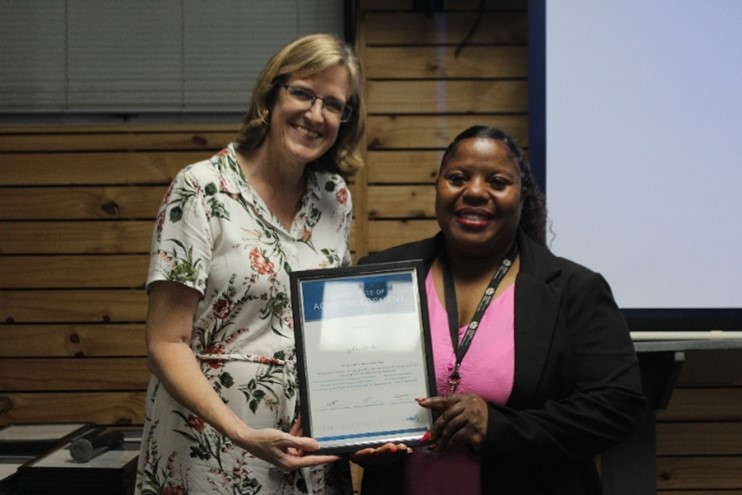 |
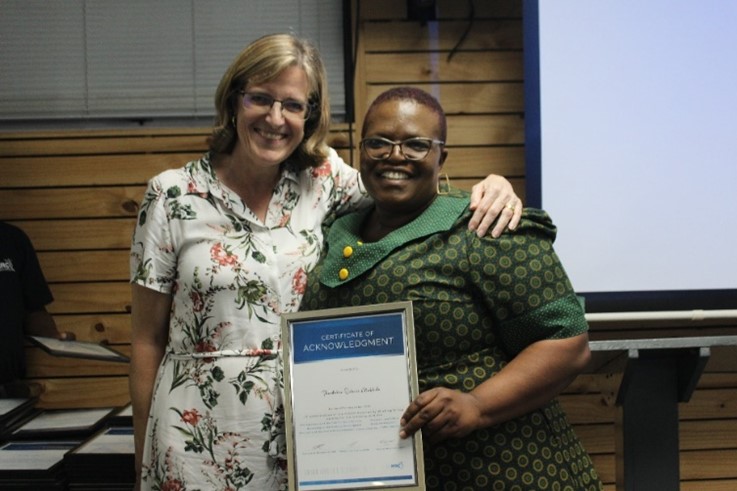 |
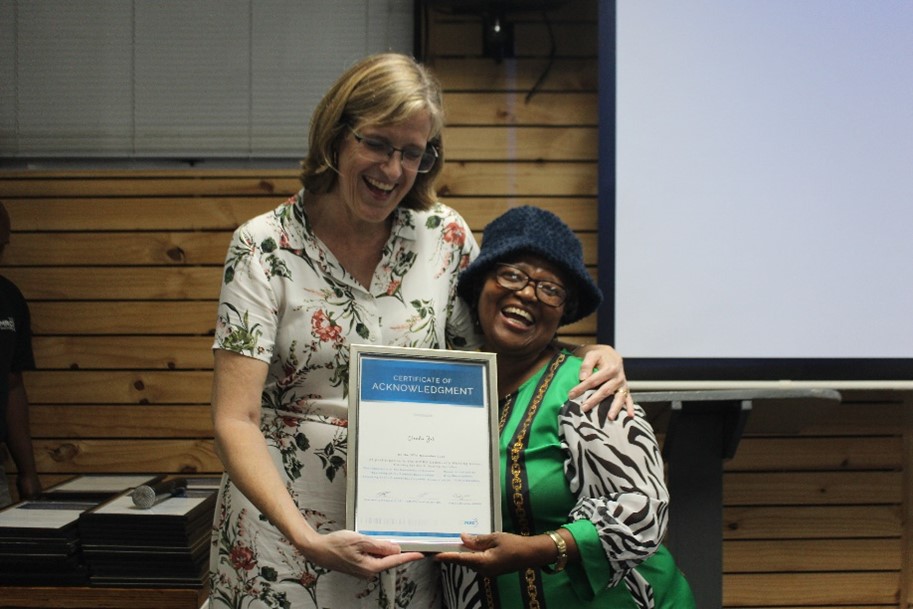 |
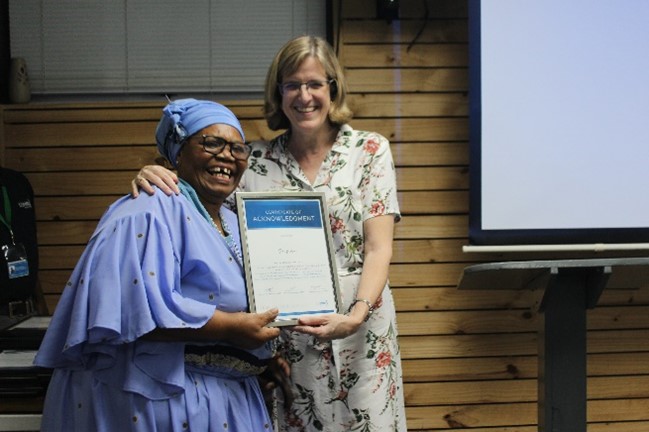 |
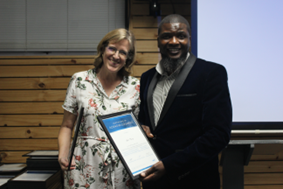 |
|
The CWGs led the full-day programme, from chairing the event, giving presentations on their topics, time keeping and engaging with other CWGs and management. They thanked HIDRU for their certificates which covered the following topics:
- Reviewing the Protocol Development
- The importance of communities in science
- Research and Ethics
- Drug development
- Public speaking and
- Communication skills
Read more about current projects at HIDRU | HERE
